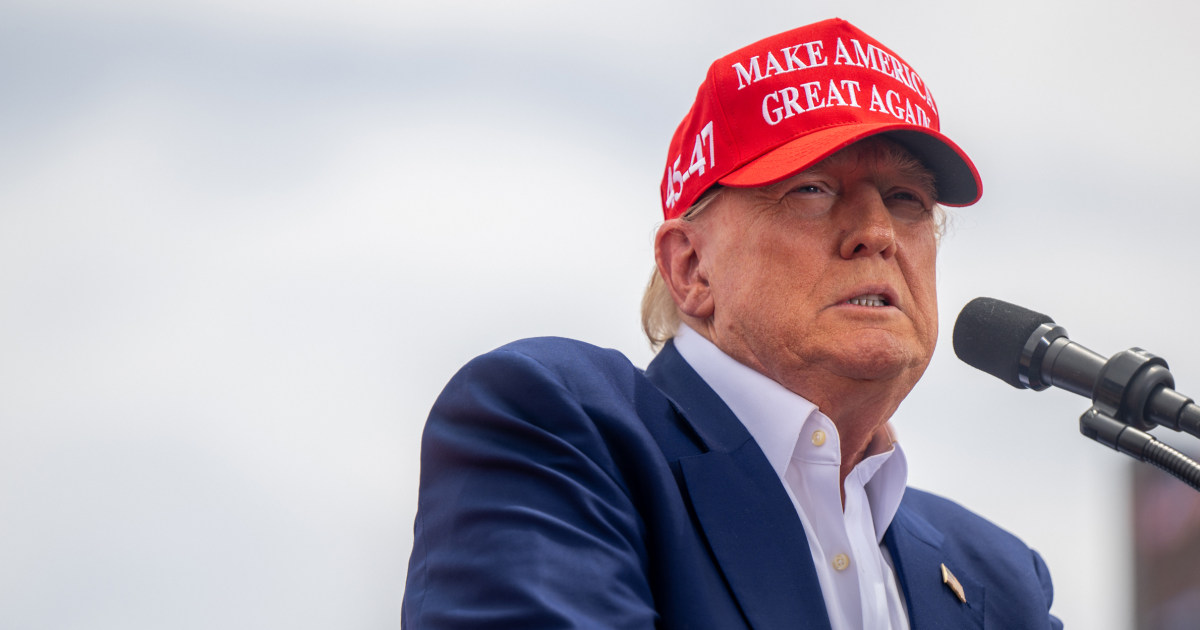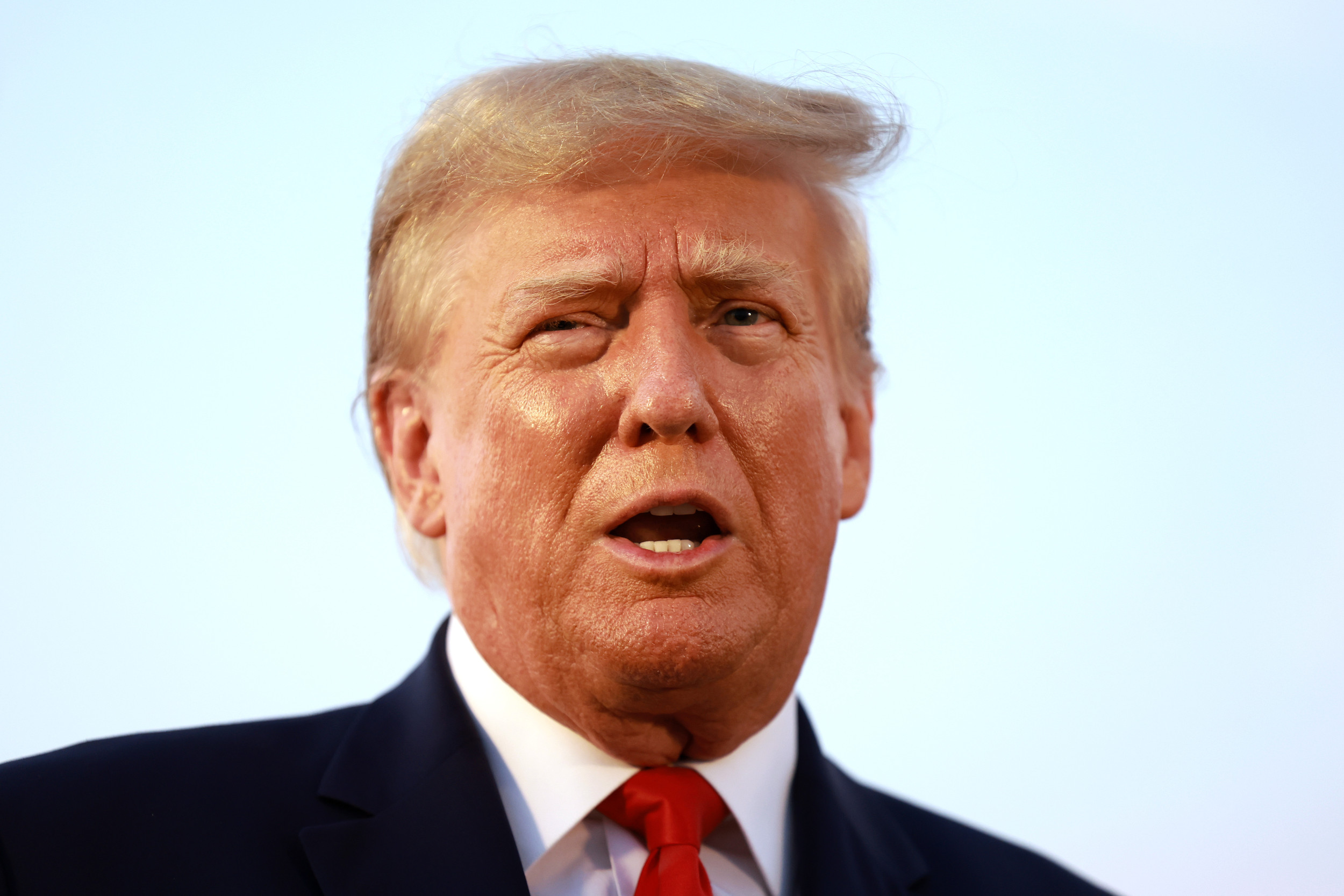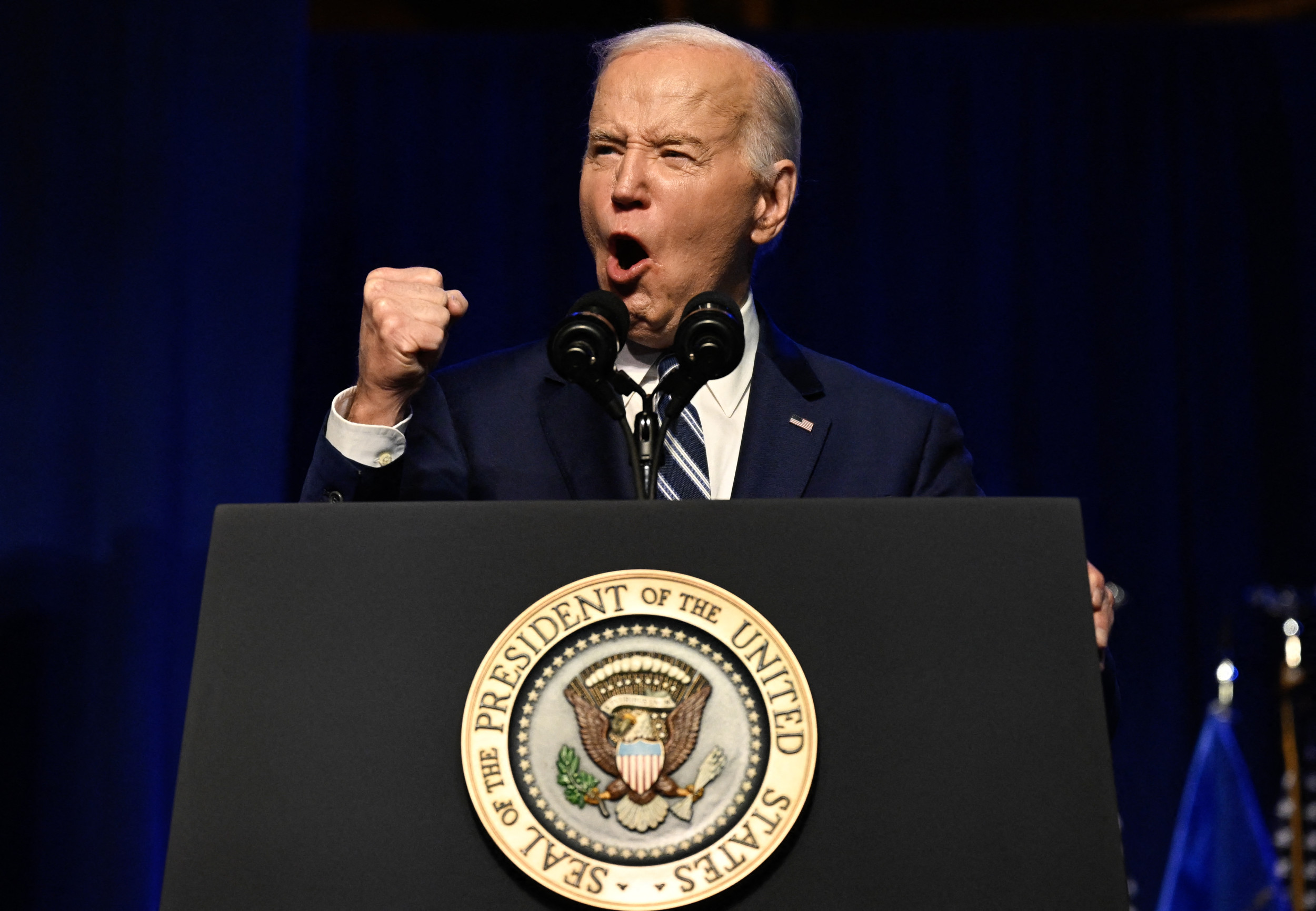In a sharp reversal, former President Donald Trump has embraced the cryptocurrencies he once reviled, looking to outflank rivals Joe Biden and Robert F. Kennedy Jr. among the technology’s devoted young fan base — and its deep-pocketed executives.
Hours after meeting with bitcoin miners at his Mar-a-Lago estate in Florida on Wednesday, the former president said on his Truth Social media platform that cryptocurrency users should “vote for Trump!” because he will stand up to “Biden’s hatred of Bitcoin.”
The declaration came after weeks of concerted outreach to crypto enthusiasts and the people leading the burgeoning industry — and it already seems to be paying off. One bitcoin mining executive who met with Trump told CNBC that his industry has committed to raising over $100 million and turning out more than 5 million voters to help Trump this fall.
But just a few years ago, when Trump was in the White House, he made it clear he was not a fan of bitcoin and other cryptocurrencies.
“I am not a fan of Bitcoin and other Cryptocurrencies, which are not money, and whose value is highly volatile and based on thin air,” he said in a series of social media posts in 2019 while he was still in office. “Unregulated Crypto Assets can facilitate unlawful behavior, including drug trade and other illegal activity.”
“We have only one real currency in the USA,” Trump continued, “And it will always stay that way. It is called the United States Dollar!”
Trump maintained that position after he left the office and as recently as 2021, when he told Fox Business in one interview that bitcoin “just seems like a scam.” In another interview with the network, he said cryptocurrencies seemed like a “disaster waiting to happen.”
“I don’t think we should have all of the bitcoins of the world out there. I think they should regulate them very, very high,” Trump told Fox Business in August 2021.
Three months ago, in March, Trump told CNBC that his thinking had changed a bit as bitcoin’s price rebounded after a series of scandals and setbacks, saying crypto was becoming increasingly entrenched and that he was “not sure I’d want to take it away at this point.”
By May, Trump had completed his evolution to become a full-throated evangelist of cryptocurrencies in the run-up to the Libertarian Party’s national convention in Washington, where both he and Kennedy spoke.
In a speech to the libertarians that was frequently interrupted by boos and jeers, Trump earned applause for vowing to “stop Joe Biden’s crusade to crush crypto.”
“I will ensure that the future of crypto and bitcoin will be made in the USA, not driven overseas. I will support the right to self-custody to the nation’s 50 million crypto holders,” he added. “With your vote, I will keep Elizabeth Warren and her goons away from your bitcoin. And I will never allow the creation of a central bank digital currency.”
Because mining requires enormous amounts of energy, Trump now portrays crypto as a national and energy security issue, including for the fossil fuel industry that he has promised to defend.
His campaign also announced it would become the first major presidential campaign in history to accept donations in cryptocurrency, vowing to “build a crypto army moving the campaign to victory on November 5th.”
The move comes as Trump’s campaign feels confident it can pull some young voters — especially young men of color — from their traditional home in the Democratic Party and as Trump and his allies step up their attacks on Kennedy.
Kennedy is an outspoken proponent of cryptocurrencies whose first public appearance as a presidential candidate came at a bitcoin conference in Miami last year.
“I’m not going to question if it was a political decision,” Kennedy said when asked about Trump’s reversal on cryptocurrency at a conference in Texas last week. “I’m happy he did it, and I hope President Biden does, too.”
Biden last week issued a rare veto of a crypto industry-backed resolution that would have overturned new Securities and Exchange Commission guidance on cryptocurrencies. “Appropriate guardrails that protect consumers and investors are necessary to harness the potential benefits and opportunities of crypto-asset innovation,” Biden said in his veto message.
A former Biden administration financial regulator who now analyses the crypto industry in the private sector but was not authorized to speak publicly said the industry is not convinced Trump will be a reliable ally, given his track record. The industry has grown frustrated with what it perceives as hostile rhetoric from Biden regulators.
“There’s a big fight in the industry right now whether [Trump’s shift] is legit. A lot people are saying, ‘Don’t assume it is since it’s Trump.’ But others are saying, ‘He’s saying nice things while the Biden admin is not, so it’s hard to not be convinced by this.’”
“The Biden admin kind of f—– up here,” the former administration staffer added, pointing to remarks seen as mocking the industry by SEC Chair Gary Gensler. “I love them, I support them, I’m going to vote for them. But Gary’s [rehtoric] … is losing trust, losing votes.”
Last month, Gensler said “the crypto industry’s record of failures, frauds and bankruptcies” came about because “many players in the crypto industry don’t play by the rules.”
Mark Cuban, the billionaire Democrat, warned Biden in a response on X that he “has to choose between Gensler or crypto voters or it could cost him the White House.”
Several Democratic congressional leaders voted in favor of the resolution Biden vetoed, including Senate Majority Leader Chuck Schumer — whose state, New York, is the country’s financial capital — and most of the Democratic senators up for re-election this year.
Despite the fall of politically active crypto moguls like Sam Bankman-Fried, the industry has been dramatically expanding its political footprint in Washington as the industry faces new regulatory threats from Congress and the SEC.
One major industry-aligned super PAC, Fairshake, has already raised $93 million and spent more than $40 million, according to campaign finance reports. That included $10 million in the California Democratic primary for Senate to help defeat Rep. Katie Porter, D-Calif., a protege of Warren’s, who has been leading the effort in Congress to apply stricter guardrails to the new industry.
Still, the broader appeal of cryptocurrency is likely limited.
According to a 2023 Pew Research Center survey, only 17% of Americans said they have ever traded or invested in cryptocurrency. And three-quarters of people who were aware of cryptocurrencies said they are not confident in their safety and reliability.
But the survey also showed that crypto users skew younger, male and racially diverse — a key segment of voters over which Biden, Trump and Kennedy are all competing.
Trump has yet to detail policy specifics, but his rhetorical about-face is being read by the multibillion-dollar industry as a clear sign that it would have a friendlier regulatory climate in Washington under Trump.
Brian Morgenstern, the head of public policy at Riot Platforms, a bitcoin mining company with a $3 billion market cap, published an op-ed in Bitcoin Magazine after meeting with Trump this week declaring the Republican to be the “best choice for Bitcoin.”
“The choice is clear. President Trump will protect your right to own Bitcoin, to mine Bitcoin, to transact with Bitcoin,” he wrote, while adding that the Biden administration “has been extraordinarily hostile to Bitcoin.”















